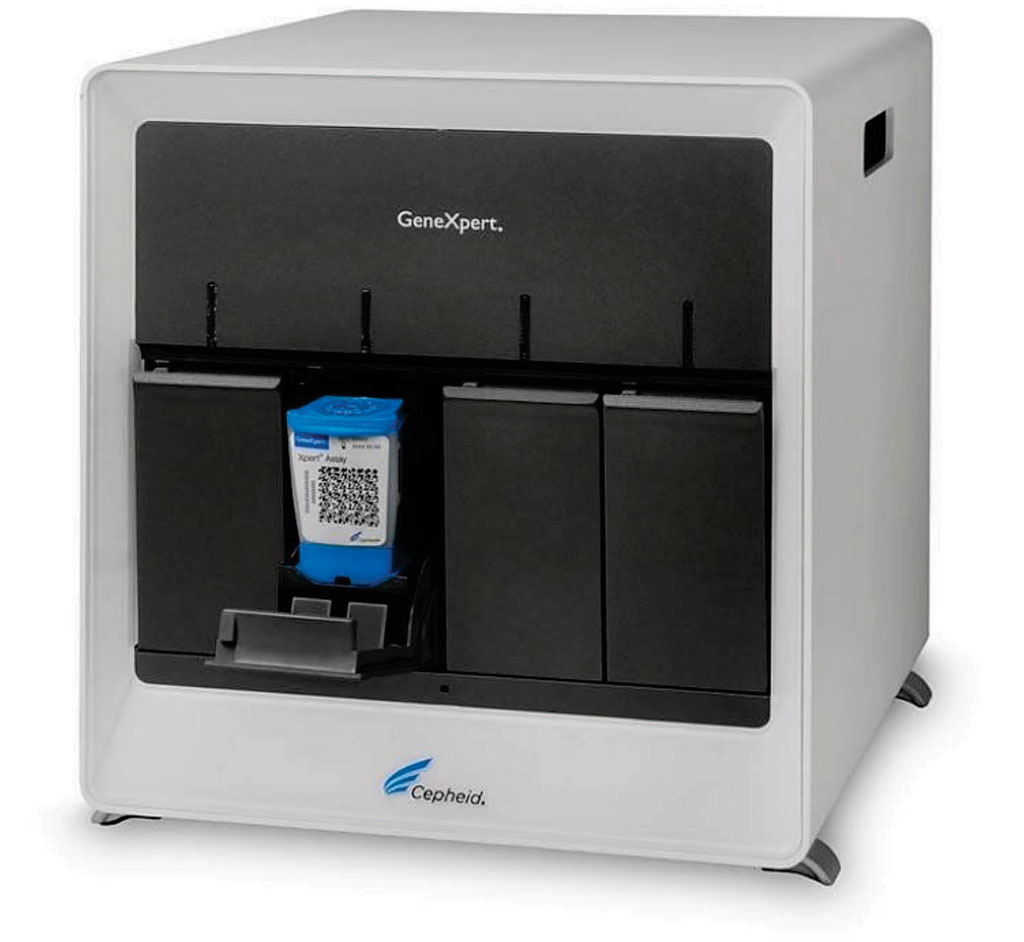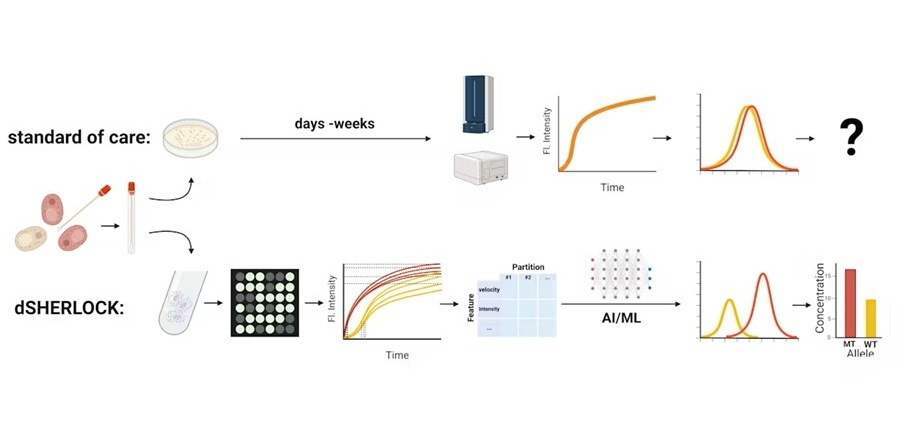Rapid PCR-Based Assay Updated for Detection of TB
By LabMedica International staff writers
Posted on 03 Jan 2017
An updated version of a rapid polymerase chain reaction (PCR)-based assay for the detection of Mycobacterium tuberculosis complex DNA (MTBc) and mutations associated with rifampin resistance (RIF) has been evaluated.Posted on 03 Jan 2017
The updated version the assay includes modifications to one of the five rpoB-specific assay probes (probe B) and to the analytic software settings with the goal of decreasing both false positive rifampin resistance (RIF) resistance results and the more than 5% non-determinate result rate reported in some settings.

Image: The GeneXpert MTB/RIF assay is a rapid diagnosis test of Tuberculosis (TB) and drug resistance (Photo courtesy of Cepheid).
A team of scientists led by those at the New Jersey Medical School (Newark, NJ, USA) performed a clinical study in which specimens from US and non-US persons suspected of tuberculosis (TB) were tested to determine the performance characteristics of the assay. All specimens underwent smear microscopy, mycobacterial culture, conventional drug-susceptibility testing and PCR testing; DNA from isolates with discordant rifampin resistance results was sequenced.
The updated assay under investigation was the Xpert MTB/RIF G4 assay (Cepheid, Sunnyvale, CA, USA). In the analytical study, culture-positive isolates were confirmed to be MTBc positive by AccuProbe MTBC Identification Test (Hologic Incorporated, Marlborough, MA, USA). Acid-fast bacilli (AFB) smear status was determined using the specimen with a corresponding Xpert result. An MTB positive case was defined as MTB growth on solid or liquid culture from any specimen.
The team found that among 191 laboratory-prepared isolates in the analytical study, Xpert sensitivity for detection of rifampin resistance associated mutations was 97.7% and specificity was 90.8%, which increased to 99.0% after DNA sequencing analysis of the discordant samples. Overall, Xpert detected MTBc in 439 of 468 culture-positive specimens for a sensitivity of 93.8% and did not detect MTBc in 620 of 628 culture-negative specimens for a specificity of 98.7%. Sensitivity was 99.7% among smear-positive cases, and 76.1% among smear-negative cases. Non-determinate MTBc detection and false-positive RIF resistance results were low (1.2% and 0.9%, respectively).
The authors concluded that the G4 Xpert assay had low rates of non-determinate and false positive RIF resistance results that were not consistent with previously reported rates observed at some sites. In addition, they found high sensitivity and specificity for MTBc and RIF resistance detection that compared well to the previous versions of the assay. The study was published on December 20, 2016, in the journal BMC Infectious Diseases.
Related Links:
New Jersey Medical School
Cepheid
Hologic













